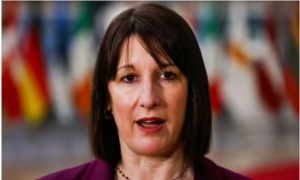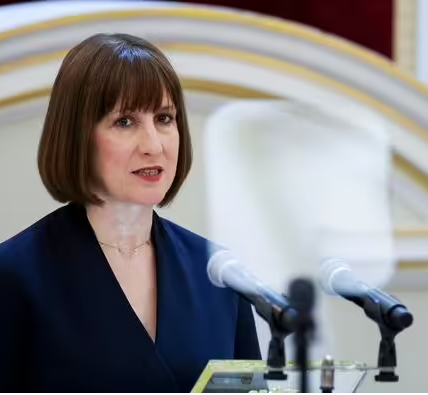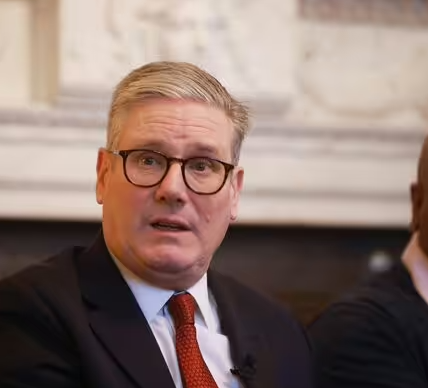www.theguardian.com /politics/2024/sep/23/rachel-reeves-increased-government-spending-no-austerity
Reeves pledges increased government spending and no return to austerity
- Peter Walker4-5 minutes 9/23/2024
The public understands the need for sacrifices to stabilise the economy, Rachel Reeves has argued before her Labour conference speech, with the chancellor facing pressure from some Labour MPs to lift what they see as the government’s gloomy approach.

Stressing that there was a “prize” ahead if the fiscal situation could be improved, Reeves insisted there would be no return to austerity – but also refused to rule out some government departments facing real-terms cuts.
Ahead of a speech in which she will also unveil investigations into more than £600m-worth of Covid contracts awarded under the Conservatives, Reeves said many of the problems she faced were because the last government had been “dishonest” over the public finances.
“There won’t be a return to austerity,” she told BBC Radio 4’s Today programme. “There will be real-terms, increases to government spending in this parliament.”
Asked if some departments could nonetheless face real-terms cuts, Reeves did not rule this out. She said: “What I’m saying is there will not be real-terms cuts to government spending, but the detailed department by department spending will be negotiated.”
Before her speech, and before the 30 October budget, at which Reeves will also set out an interim one-year spending settlement, there is concern among some ministers and backbench Labour MPs that the government has over-stressed the fiscal inheritance from the last government, and needs to give grounds for optimism.
Challenged over whether the repeated talk of a £22bn fiscal “black hole” and the prospect of tax rises and constrained spending risked depressing the economy, Reeves said she had no other choice.
“I could have continued that cover-up and just pretended it wasn’t there, or I could be open and honest with people about the scale of the challenge and that the path ahead will be harder and steeper than we had previously anticipated,” she said.
“I think the public get that the reason the Conservatives lost the election is not because the economy was doing well and public services were in great shape.
“People understand that there are difficult choices ahead, but what I’m setting up today in my conference speech is the prize if we can bring stability back to our economy.”
For now, however, Reeves said, there would be some hardship. Refusing to reveal the detail of what might come in October’s budget, she warned of “a number of difficult decisions around tax and spending and welfare”.
Among the choices already made is the removal of the winter fuel allowance from all except the poorest pensioners. Such cuts, Reeves said, were “not changes that I expected to make or wanted to make, but when faced with a situation when there’s a £22bn black hole, not some year in the future, but this year in the public finances, it requires difficult decisions”.
At the party’s conference in Liverpool, the Labour leadership faces a potential defeat in a vote to condemn the winter fuel decision, one led by the Unite and the Communication Workers Union trade unions.
While the unions had hoped the issue could be debated on Monday, it is likely to be moved to Wednesday morning, at the end of the conference, when it might attract less attention.
Reeves’ speech will contain elements of a fightback against recent negative headlines, including the referral of more than half of contracts for material such as masks to the incoming Covid corruption commissioner.
The way some lucrative Covid contracts were awarded through a VIP lane was an issue that dogged the last government, provoking criticisms of a “chumocracy”.
In her speech, the chancellor will say: “Billions of pounds of public money handed out to friends and donors of the Conservative party. Billions more defrauded from the taxpayer.
“So we are delivering on our commitment to appoint a Covid corruption commissioner. It could not be more urgent. And I have put a block on any contract being abandoned or waived until it has been independently assessed by the Covid commissioner.”


